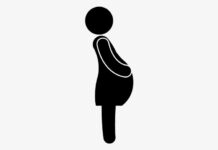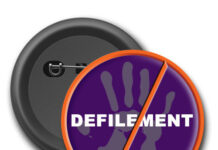A baby specialist, Dr. Nkeiruka Asumah, who is the Consultant Paediatrician and Partner in charge of medical support services. at Paelon Memorial Hospital in Lagos, has advised newborn mothers to be determined to breastfeed their babies, saying that giving breast milk to babies is hard work that comes with a lot of benefits for the babies as well as their mothers.
Dr. Azuma said breastfeeding shouldn’t be a problem to new mothers if they adjust their lifestyles to suit their babies because babies do not sleep in the night and as a parent that is used to sleep in the night, the styles need to change.
“Babies sleep through the day and that is when mothers too should sleep and relax and not the time to run around to clean the house or cook You need to get enough rest. Anything that stresses you will reduce the production of breastmilk” . She added.
According to the World Health Organisation, Breastfeeding is one of the most effective ways to ensure child health and survival.
Calm down Video, lesson of rights and responsibility for stakeholders
New Mothers
- In the first few days of life, the milk may not flow well .
- Baby may not suck well and may make mothers get anxious.
- Baby sleeps most of the time during the day time and mothers need to adjust to the baby lifestyle.
- The little milk they take is enough for the size of the stomach at that time. Don’t be anxious for nothing.
- As he takes more, the stomach expands and helps him to absorb more.
- The sooner a mother starts is very key and that is why it is recommended that 30 minutes after birth, breastfeeding should start.
- Automatically, babies suck because they are born with that reflex. Nobody teaches a baby how to suck. Sucking breastmilk is a survival.
Benefits of Breastfeeding
Babies fed with breast milk escape the risk of infection, respiratory diseases, and other illnesses and they later grow up to be more intelligent. This is because breast milk has antibodies that fight infections and reduces the risk of allergies.
Mothers should be willing to breastfeed their babies and should prepare their minds as breastfeeding can be a lot of work.
Note that Africa environment allows people to come around to take care of the newborn and the mother, but it is always good for mothers to access information for better understanding of her new lifestyle. .
On getting right information, it is important for mothers to go to the right sources. Once she is aware, she should be able to make the right choice on breastfeeding her child. Breast milk is enough to sustain a baby in the first six months.
Don’t get worried
Breastfeeding is not a problem. It can be hard work but mothers need to get enough rest. When a baby is born, as a mother, you have to adjust your lifestyle to suit the baby. Baby does not sleep in the night and as a mother who is used to sleep in the night, the styles need to change.
Since babies enjoy their sleep during the day, it is also advisable for mothers to make use of that opportunity to get a good sleep. It should not be the time to run around to clean the house or cooking. Get enough rest because anything that stresses you will reduce the production of breast milk.
World Breastfeeding Week 2020 Message
Joint message: UNICEF Executive Director Henrietta H. Fore and WHO Director-General Tedros Adhanom Ghebreyesus
The theme of World Breastfeeding Week 2020 is “Support breastfeeding for a healthier planet”. In line with this theme, WHO and UNICEF are calling on governments to protect and promote women’s access to skilled breastfeeding counselling, a critical component of breastfeeding support.
Breastfeeding provides every child with the best possible start in life. It delivers health, nutritional, and emotional benefits to both children and mothers. And it forms part of a sustainable food system. But while breastfeeding is a natural process, it is not always easy. Mothers need support – both to get started and to sustain breastfeeding.
Skilled counselling services can ensure that mothers and families receive this support, along with the information, the advice, and the reassurance they need to nourish their babies optimally.
Breastfeeding counselling can help mothers to build confidence while respecting their individual circumstances and choices. Counselling can empower women to overcome challenges and prevent feeding and care practices that may interfere with optimal breastfeedings, such as the provision of unnecessary liquids, foods, and breastmilk substitutes to infants and young children.
Improving access to skilled counselling for breastfeeding can extend the duration of breastfeeding and promote exclusive breastfeeding, with benefits for babies, families, and economies.
Indeed, analysis indicates that increasing rates of exclusive breastfeeding could save the lives of 820 000 children every year, generating the US $302 billion in additional income.
Skilled breastfeeding counselling can be provided by different actors including health care professionals, lactation counsellors, and peer support providers, and in a variety of settings– in health facilities or clinics, through home visits or community programmes, in person or remotely.
During the COVID-19 pandemic, it is even more important to find innovative solutions to ensure that access to these essential services is not disrupted and that families continue to receive the breastfeeding counselling they need.
This is why UNICEF and WHO, in line with the policy actions advocated by the UNICEF-WHO-led Global Breastfeeding Collective, are calling on governments to:
INVEST to make skilled breastfeeding counselling available to every woman. Ensuring the availability of skilled breastfeeding counselling to every woman will require increased financing for breastfeeding programmes and improved monitoring and implementation of policies, programmes, and services.
TRAIN health care workers, including midwives and nurses, to deliver skilled breastfeeding counselling to mothers and families.
Experience vs Information: Despite technology, adults are smarter
ENSURE that counselling is made available as part of routine health and nutrition services that are easily accessible.
PARTNER and collaborate with civil society and health professional associations, building strong collaborative systems for the provision of appropriate counselling.
PROTECT health care workers from the influence of the baby food industry.
Together, through commitment, concerted action, and collaboration, we can ensure that every mother has access to skilled breastfeeding counselling, empowering her to give her baby the best possible start in life.
If breastfeeding were scaled up to near-universal levels, about 820 000 child lives would be saved every year (1). Globally, only 40% of infants under six months of age are exclusively breastfed.
WHO actively promotes breastfeeding as the best source of nourishment for infants and young children. This fact file explores the many benefits of the practice, and how strong support to mothers can increase breastfeeding worldwide.
Yes to Breastfeeding
World Breastfeeding Week is to raise awareness of the importance of breastfeeding for mothers and infants. It has also been researched that the nutritional and health status of a mother has a direct influence on the quality of her breast milk and subsequently on the health of her infant.

















